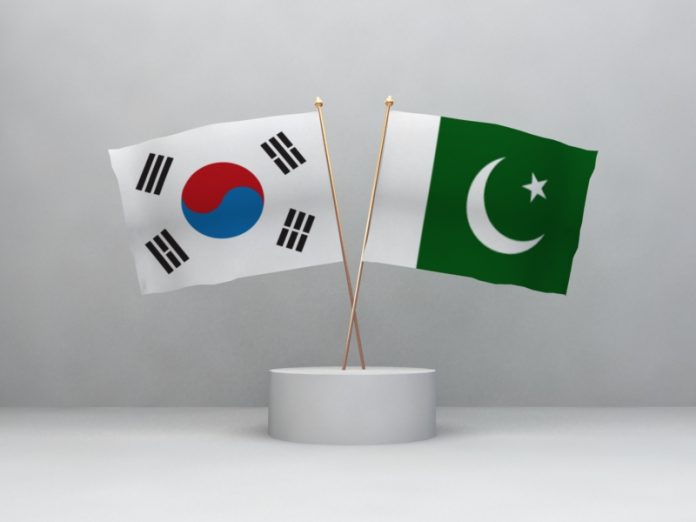In a step toward enhancing technical and vocational education in Pakistan, the National Skills University Islamabad (NSU) hosted a high-level Memorandum of Understanding (MoU) signing ceremony on Monday. The event, chaired by Federal Minister for Education and Professional Training Dr. Khalid Maqbool Siddiqui, marked a new phase of international cooperation with the Republic of Korea in technology-driven skills training.
A four-member delegation from Tongwon University, South Korea, visited NSU to discuss potential collaborations in various technological disciplines. The Korean representatives highlighted the importance of Korean language proficiency for Pakistani students aiming to pursue educational and vocational opportunities in Korea. They introduced Korea’s successful “earn and learn” model, which allows students to gain work experience and income alongside their education.
Dr. Siddiqui, speaking in his dual capacity as the Federal Minister and Pro-Chancellor of NSU, welcomed the delegation and reaffirmed the government’s resolve to align vocational training with the demands of the fourth industrial revolution. “We are fully invested in building a globally competitive, technology-oriented workforce,” he said, noting that such partnerships would help Pakistani youth access international job markets and acquire in-demand competencies.
He also emphasized continued collaboration with key institutions such as the National Vocational and Technical Training Commission (NAVTTC) and other development stakeholders. These partnerships, he noted, are central to implementing effective and scalable vocational programs nationwide.
Calling the Minister’s presence a “historic moment,” NSU Vice Chancellor Prof. Dr. Muhammad Mukhtar praised the federal government’s involvement in skills development. He pointed to NSU’s expanding footprint — particularly through its sub-campus in Muridke — which is geared toward equipping underserved youth in Punjab with market-relevant qualifications.
Prof. Mukhtar also applauded the Ministry’s efforts to establish a Karachi campus of NSU, a long-anticipated move that could significantly broaden access to skills-based education in Pakistan’s southern region.
The delegation from Tongwon University also announced plans to establish six Korean language learning centers in collaboration with the Ministry of Federal Education and Professional Training. These centers aim to enhance language proficiency and improve the overseas employment prospects of Pakistani students, particularly in technologically advanced sectors like automation, smart manufacturing, electronics, and renewable energy.
The initiative could diversify Pakistan’s overseas workforce, which is currently concentrated in the Middle East. By opening new global pathways, especially in East Asia, the collaboration may also strengthen Pakistan’s geopolitical and economic presence.
As Pakistan’s first public sector skills-focused university, NSU has been offering both degree programs and technical certifications in areas such as mechatronics, construction technology, and medical laboratory sciences. With the inauguration of its Muridke sub-campus and growing international engagement, NSU is fast becoming a national model for skills education tailored to global standards.
Aligned with the goals of Pakistan Vision 2025, which emphasizes human capital development, innovation, and entrepreneurship, NSU’s approach to blending academic learning with practical training reflects a strategic blueprint for the country’s future.
In his concluding remarks, Dr. Siddiqui stressed that skills education is more than an academic goal — it is a cornerstone of national economic strategy. He pledged ongoing support from the Ministry for NSU and similar institutions, especially in expanding international avenues for Pakistani youth.




